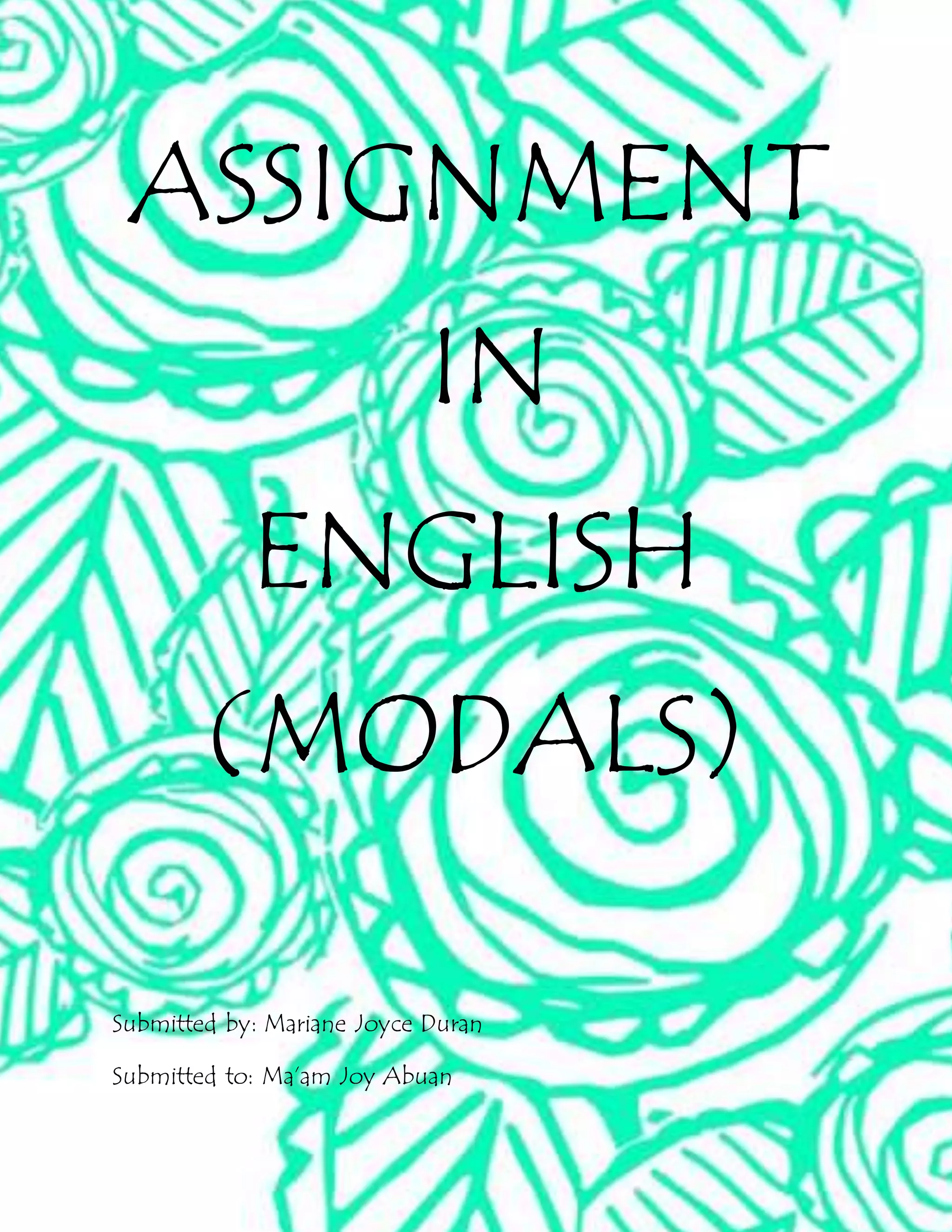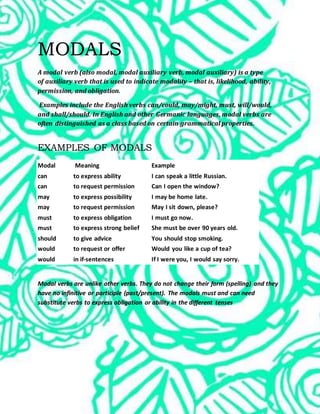This document discusses modals in English grammar. It provides examples of common modal verbs like can, may, must, should and would and their meanings for expressing ability, permission, obligation, advice and conditional statements. Modal verbs are different from other verbs in that they do not change form or have infinitives or participles. Modal verbs give information about the function of the main verb they govern and have communicative functions on a scale from possibility to necessity, including epistemic modality about the possibility of propositions, deontic modality about freedom to act, and dynamic modality about one's own ability or willingness to act.


![FUNCTIONS OF MODALS
A modal auxiliary verb gives much information about the function of the
main verb that it governs. Modals have a wide variety of communicative functions,
but these functions can generally be related to a scale ranging from possibility
("may") to necessity ("must"), in terms of one of the following types of modality:
epistemic modality, concerned with the theoretical possibility of propositions being
true or not true (including likelihood and certainty)
deontic modality, concerned with possibility and necessity in terms of freedom to
act (including permission and duty)
dynamic modality,[2] which may be distinguished from deontic modality, in that with
dynamic modality, the conditioning factors are internal – the subject's own ability or
willingness to act[3]
The following sentences illustrate epistemic and deontic uses of the English modal
verb must:
epistemic: You must be starving. ("It is necessarily the case that you are starving.")
deontic: You must leave now. ("You are required to leave now.")
An ambiguous case is You must speak Spanish. The primary meaning would be the
deontic meaning ("You are required to speak Spanish.") but this may be intended
epistemically ("It is surely the case that you speak Spanish.") Epistemic modals can
be analyzed as raising verbs, while deontic modals can be analyzed as control verbs.
Epistemic usages of modals tend to develop from deontic usages.[4] For example, the
inferred certainty sense of Englishmust developed after the strong obligation sense;
the probabilistic sense of should developed after the weak obligation sense; and the
possibility senses of may and can developed later than the permission or ability
sense. Two typical sequences of evolution of modal meanings are:
internal mental ability → internal ability → root possibility (internal or external ability)
→ permission and epistemic possibility
obligation → probability](https://image.slidesharecdn.com/assignmentinenglish-141113060232-conversion-gate02/85/Assignment-in-english-3-320.jpg)